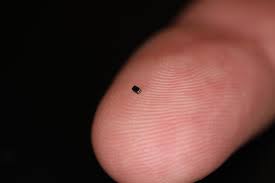
Breaking News
 Watch This If You Want To Grow Your Own Food in 2026
Watch This If You Want To Grow Your Own Food in 2026
 US government admits fault in midair collision that killed 67 near DC
US government admits fault in midair collision that killed 67 near DC
 'Investing in regenerative and organic is not a political stance':
'Investing in regenerative and organic is not a political stance':
 Why Dan Bongino is LEAVING FBI and Trump Admin and Returning to Podcasting...
Why Dan Bongino is LEAVING FBI and Trump Admin and Returning to Podcasting...
Top Tech News
 This tiny dev board is packed with features for ambitious makers
This tiny dev board is packed with features for ambitious makers
 Scientists Discover Gel to Regrow Tooth Enamel
Scientists Discover Gel to Regrow Tooth Enamel
 Vitamin C and Dandelion Root Killing Cancer Cells -- as Former CDC Director Calls for COVID-19...
Vitamin C and Dandelion Root Killing Cancer Cells -- as Former CDC Director Calls for COVID-19...
 Galactic Brain: US firm plans space-based data centers, power grid to challenge China
Galactic Brain: US firm plans space-based data centers, power grid to challenge China
 A microbial cleanup for glyphosate just earned a patent. Here's why that matters
A microbial cleanup for glyphosate just earned a patent. Here's why that matters
 Japan Breaks Internet Speed Record with 5 Million Times Faster Data Transfer
Japan Breaks Internet Speed Record with 5 Million Times Faster Data Transfer
 Advanced Propulsion Resources Part 1 of 2
Advanced Propulsion Resources Part 1 of 2
 PulsarFusion a forward-thinking UK aerospace company, is pushing the boundaries of space travel...
PulsarFusion a forward-thinking UK aerospace company, is pushing the boundaries of space travel...
 Dinky little laser box throws big-screen entertainment from inches away
Dinky little laser box throws big-screen entertainment from inches away
 'World's first' sodium-ion flashlight shines bright even at -40 ºF
'World's first' sodium-ion flashlight shines bright even at -40 ºF
OmniVision nabs Guinness World Record for smallest image sensor

The OV6948 measures a mere 0.575 x 0.575 x 0.232 mm (0.022 x 0.022 x 0.009 in) and has been installed in a complete camera module measuring 0.65 x 0.65 mm, which can be used in a 1-mm-diameter catheter or endoscope for 200 x 200 back-illuminated color images. The chip also features 120-degree field of view, 3 to 30 mm focus range and the ability to capture video at up 30 frames per second. As well as having potential use in neuro, cardiac, spinal and arthroscopy procedures, the technology could also find use in dental, veterinarian and industrial applications.
"Previously, procedures in the body's smallest anatomy were performed either blind or using low quality images from fiberscopes, as existing cameras were too big and reusable endoscopes were not cost effective," said OmniVision's Aaron Chiang. "The OVM6948 wafer-level camera module offers a compact, high quality solution for disposable guidewires, catheters and endoscopes, which are experiencing growing demand because of their ability to reduce cross-contamination risks, downtime inefficiencies and costs associated with the repairs, preprocedural testing and sterilization of reusable endoscopes. In addition, these compact disposable medical devices can improve patient comfort and shorten recovery time."



